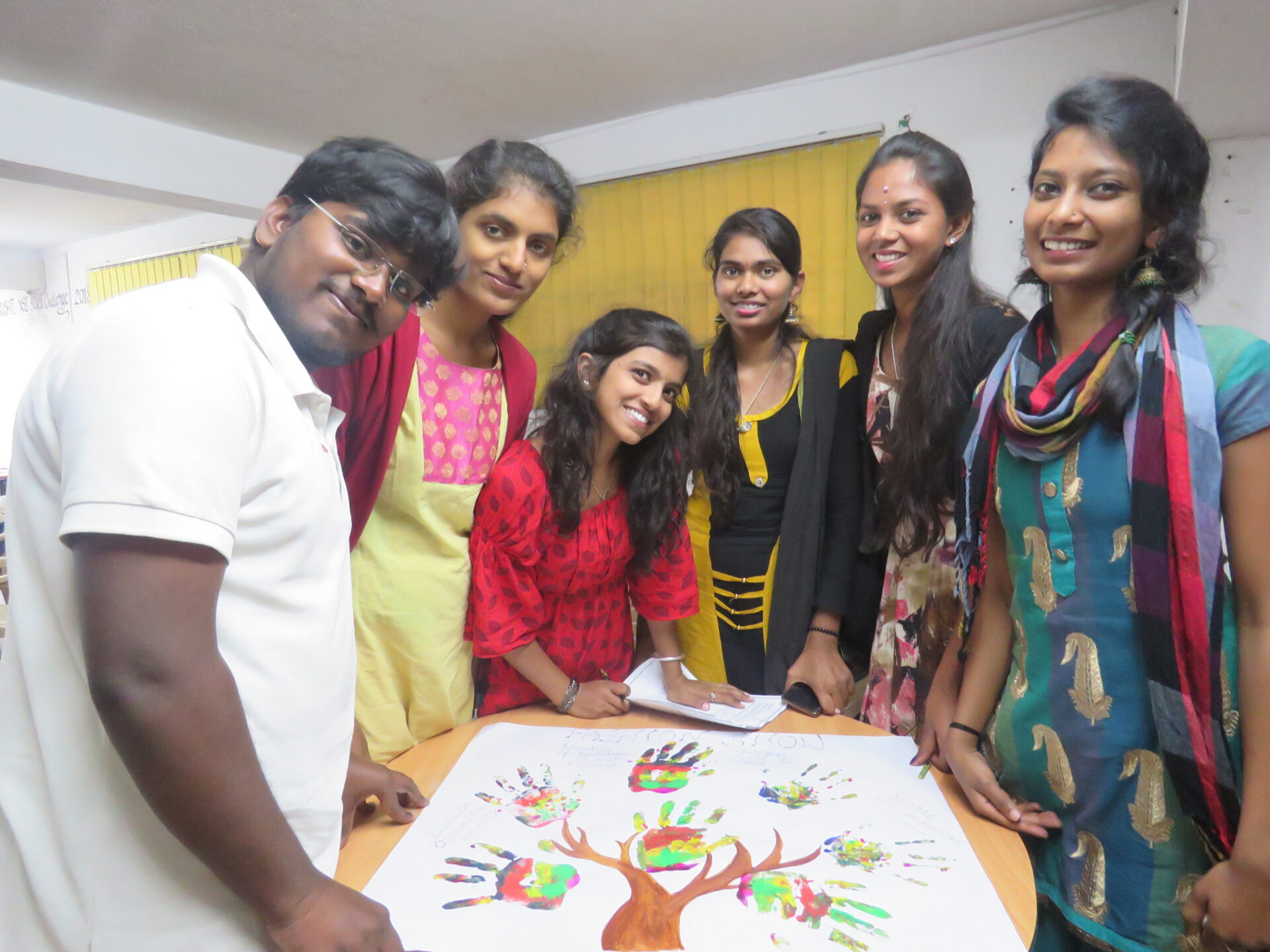
Co-Creation
Co-creation itself is well-being, helping each other to thrive on campus
At the heart of Youth Social Innovation (YSI) lies a simple but revolutionary idea:
Real change doesn’t happen for students — it happens with them.
Co-creation is not just a method at YSI — it’s a mindset, a practice, and a shared belief that when students and faculty come together as equals, they can design solutions that are deeper, more meaningful, and far more sustainable than any top-down program.
“YSI gave a platform where students talked, and adults listened.”
— Srinivas Murthy, Chairperson, YSI 2022
What Is Co-Creation?
Co-creation is the act of building solutions together, with empathy, openness, and mutual respect. It means:
- Students are not passive recipients of wellbeing programs — they are designers of them.
- Faculty are not instructors — they are co-learners and facilitators.
- Ideas don’t come from experts alone — they emerge from shared experience.
- Change begins not with answers — but with honest questions asked by those living the reality.
In YSI, co-creation unfolds through:
- Democratic processes
- Weekly reflective conversations
- Peer-led prototyping
- Open-space dialogues
- Action + reflection cycles (praxis)


CO-CREATION MODEL: Developed by Lakshmi Hariharan
She has developed this model from a decade of grassroots work where she has enabled young people as social innovators and undertaken research & independent study on “Individual & social change, using arts & design thinking processes” at Azim Premji University. It has integrated art processes and design thinking from D-School, Stanford University, USA, and co-creating from U.Theory of the Presencing Institute.
Co-creation model integrates theory and practice through Praxis in the YSI project. The idea of praxis is where action and reflection are inseparable, leading to learning. Co-creation involves building skills like empathy, dialog, imagination, problem solving, collaboration and reflection.
Equally vital is the training of YSI fellows and faculty in co-creation methods, equipping them with tools to design transformative open-space dialogues. To date, 25+ participants have mastered these collaborative leadership skills.

